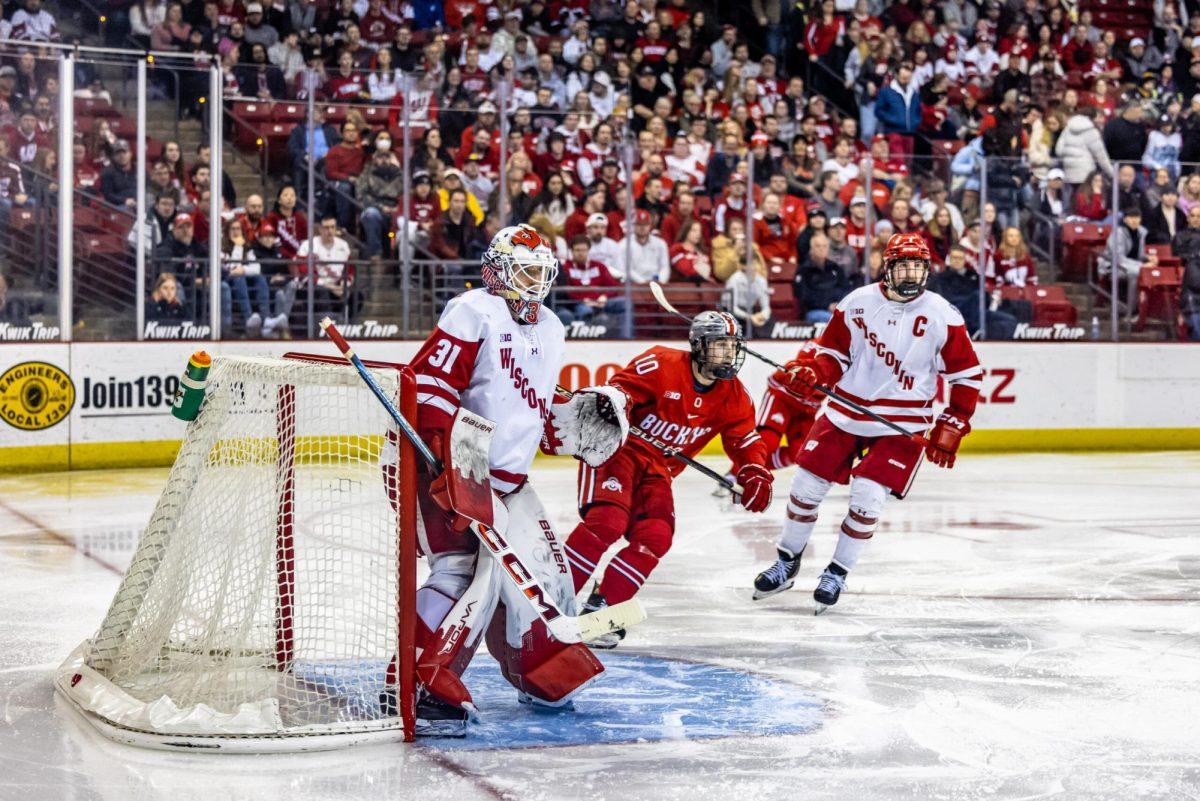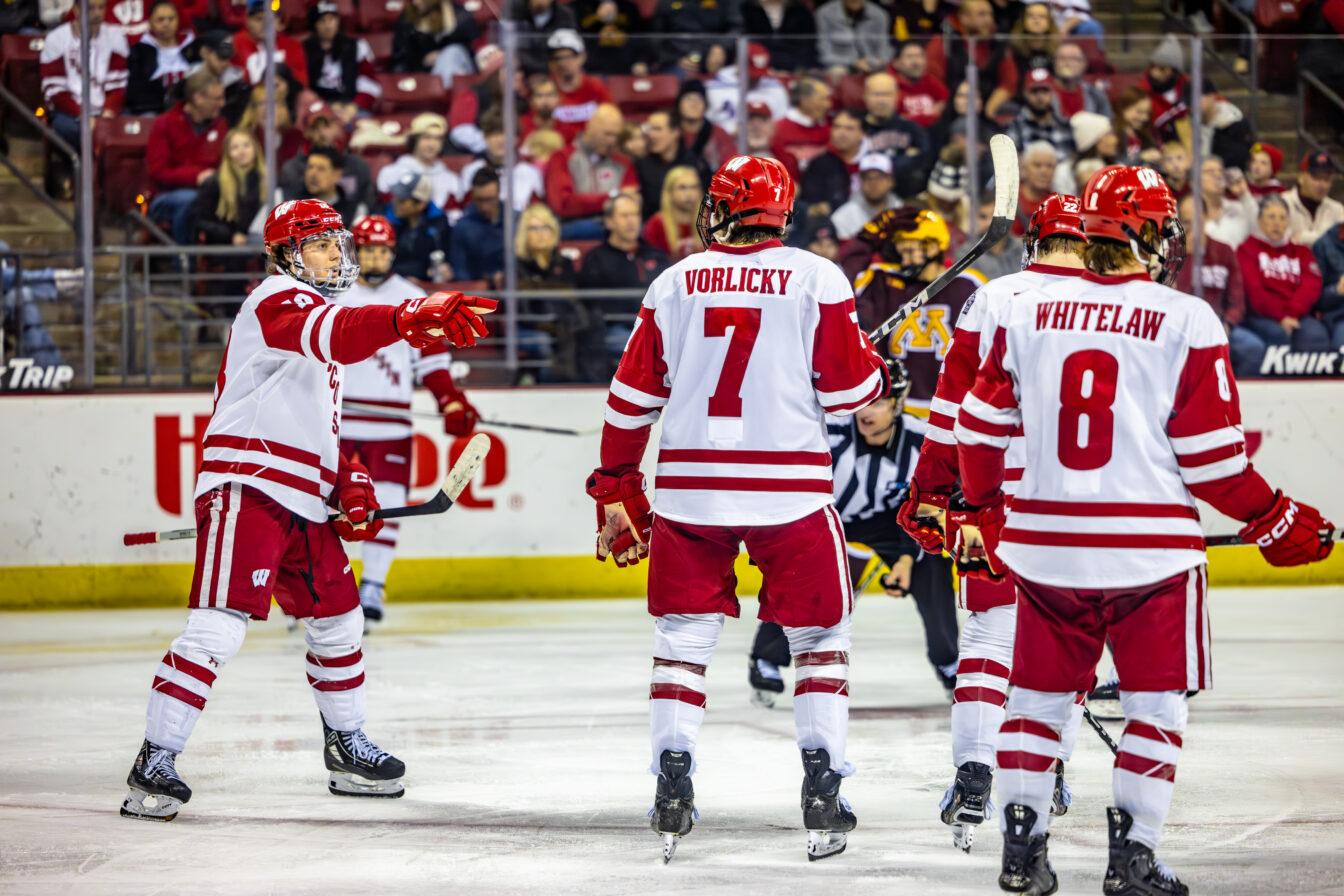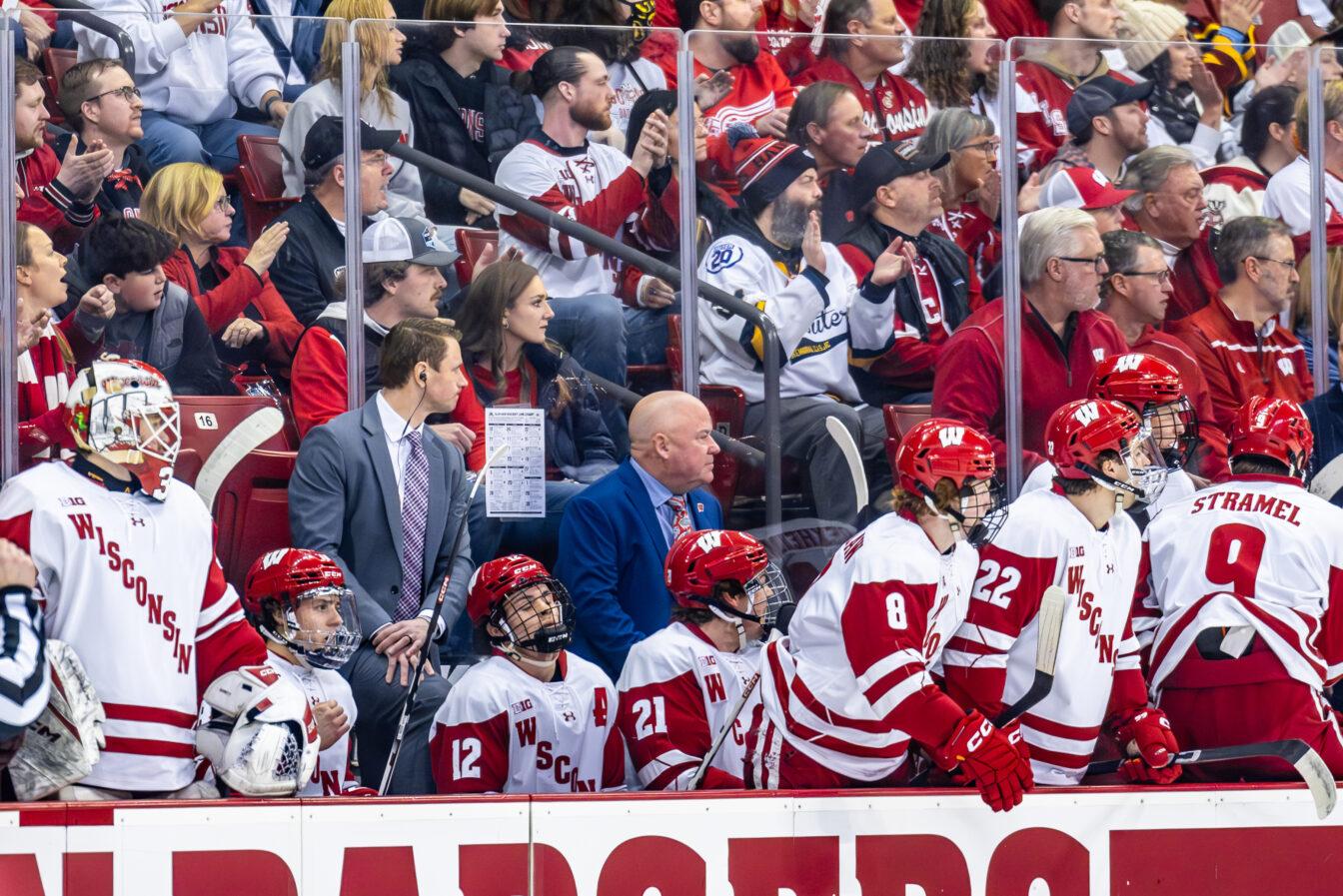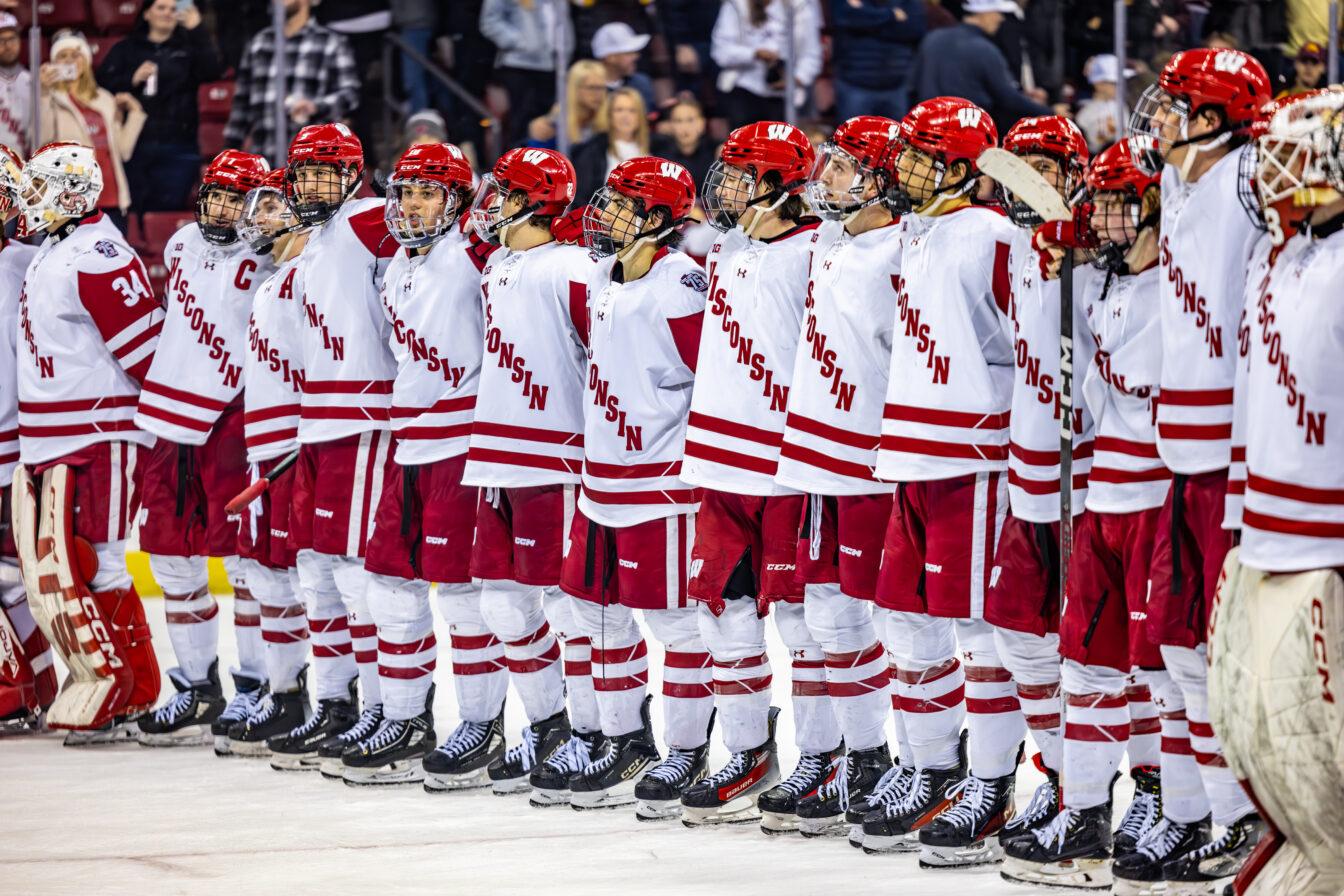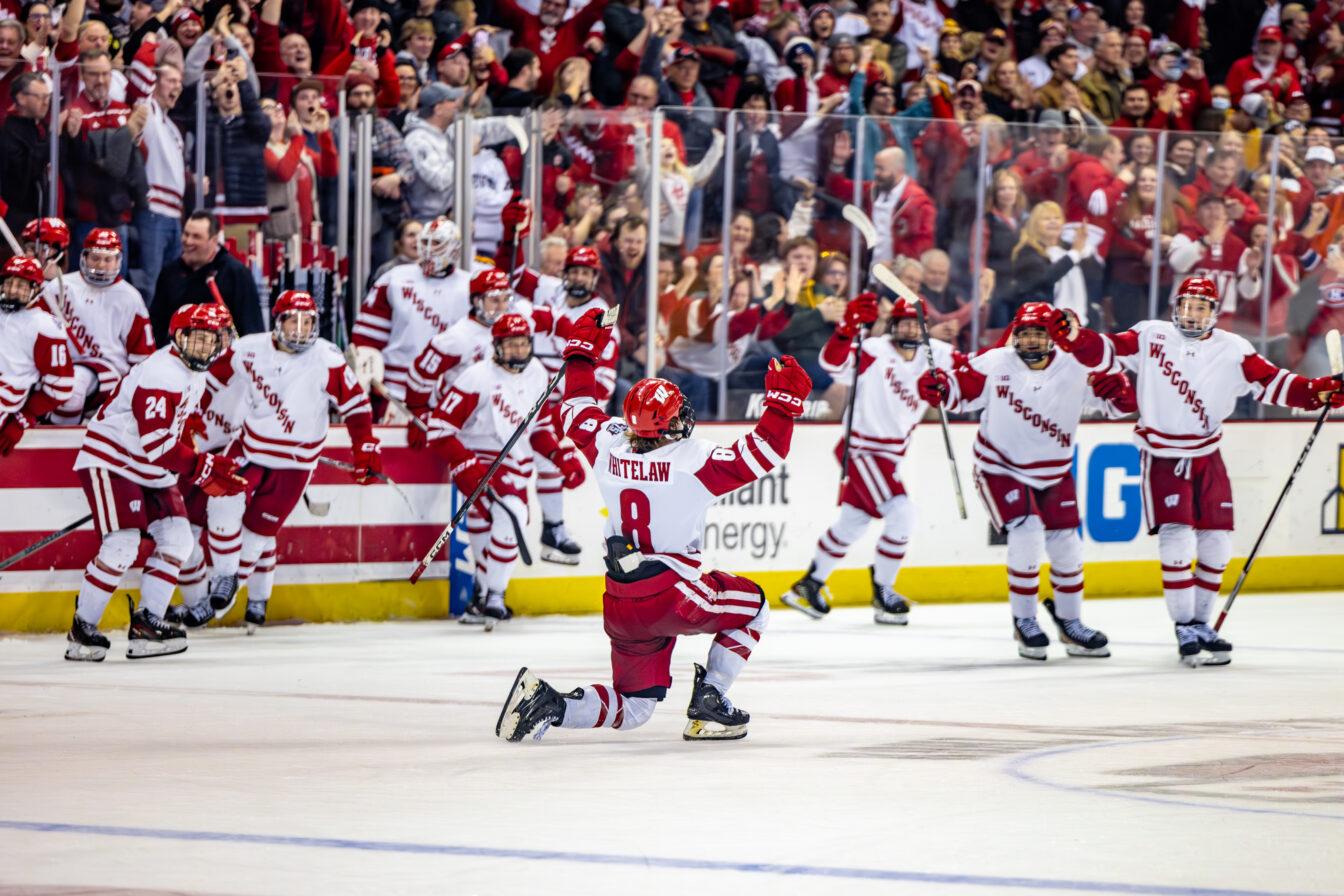[media-credit name=’Megan McCormick / The Badger Herald’ align=’alignnone’ width=’648′] [/media-credit]
[/media-credit]
Amid worries of beloved football players leaving for their chance at the NFL draft or basketball players trying their hand at the NBA, hockey players rest easy.
More often than not, they already know the NHL team for which they’ll play upon graduation, or that ever-so-tempting choice to step up to the pros early.
At Wisconsin, the men’s hockey program is the only major sport where student athletes are drafted to a professional team while donning the cardinal and white, sometimes even before.
In fact, Wisconsin’s current roster, totaling 26 players, includes eight that have already been drafted into the NHL and one additional prospect eligible to be drafted for the first time in the 2012 NHL Entry Draft in June.
Although not as massively popular as football at Camp Randall on a fall weekend afternoon or a basketball game at the Kohl Center leading into March Madness, hockey gives something to athletes other sports don’t: early interaction between collegiate players and the team they might one day play for.
A major bonus for members of the Badger hockey team in dealing with a unique set of circumstances is having three coaches who have all played in the NHL.
“[Head coach] Mike [Eaves], [assistant coach] Bill [Butters] and I played in the NHL and know what it takes to get there,” assistant coach Gary Shuchuk said. “We try to convey to the guys, even though you are a good player and you can skate, there is more to the game than that. You have to have the heart, the passion and the drive. You have to have internal drive; we can’t tell guys to go out and play hard. It has to come from within.”
Whether being drafted so early adds pressure or pushes them to become a better player, being drafted is certainly something none of them will forget.
Arguably the Badgers’ top player and a candidate for the 2012 Hobey Baker Award, Wisconsin defenseman Justin Schultz, didn’t think he had a shot of ever going pro before he was 17 years old and has since been chosen as a second-round draft pick by the Anaheim Ducks in 2008.
“I was shocked,” Schultz said. “Being a young kid, I was never a top prospect or anything like that. I was always a late bloomer and seeing that, I was in shock at first and then it just made me work harder and try to get to my dream.
“[Being drafted] was definitely a moment I am never going to forget. All my family and a couple of my best buddies [were there]. Seeing my name pop up on the computer screen was pretty funny. We were all going nuts and my mom was crying and it was pretty awesome.”
The seven other Badgers to be drafted include: Jason Clark, Patrick Daly, Joe Faust, Joseph LaBate, Michael Mersch, Brad Navin and John Ramage, while Jake McCabe waits for the results of this year’s draft.
But don’t let the fact that each of those players may have a jersey with their name stitched on the back waiting for them in a professional arena somewhere fool you into thinking they aren’t practicing and playing hard for Wisconsin.
“You can tell which kids have accomplished certain things at certain points in their career, but you still have to work to get [to the NHL]; nothing is given,” said Mersch, a sophomore forward drafted in the fourth round of 2010. “It’s really up for grabs still.”
Perhaps one of Shuchuk’s messages has gotten through to the talented but very young Wisconsin team.
“There are thousands of thousands of guys trying to make it to the NHL and only 1 percent that make it,” Shuchuk said. “So how do you get there? One is luck, two is your talent and three is that desire. You have to have something more within you to show that you want to play in the NHL and the next level. We just try to squeeze all of their talent out of them.”
Being the best hockey player possible is what drives these athletes, but even freshman defenseman McCabe, who hopes to hear his name called in June, is focusing on the major task at hand in his collegiate career: winning a WCHA championship.
“Being draft eligible and everything, obviously it’s in the back of your mind, but I’m not going to change my style of play knowing that there is possibly going to be a dozen scouts or whatnot,” McCabe said. “Maybe there are going to be 20 NHL scouts, maybe there is going to be none. The way I play every night is the way I want [scouts] to see me play anyway. I am just trying to contribute to the team and get home ice [advantage]; that is our biggest goal right now.”
If Eaves or any of the coaches ever worried about the focus of their players and whether they have team interests prioritized above personal ones, that statement should be proof the players have recognized how much they can learn from those who went before them.
“The things we talk about every week, the things that we talk about all year long, are fundamentals that are going to help us win at this level,” Eaves said. “Those same fundamentals are going to help them be successful at the next level. What we are doing, if they can grasp those concepts, it will help them [in the NHL].”



